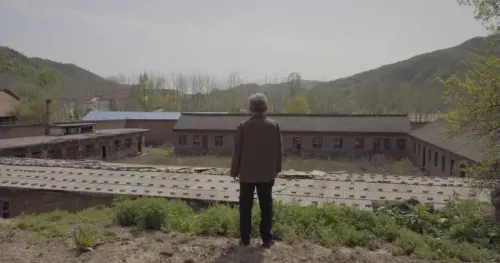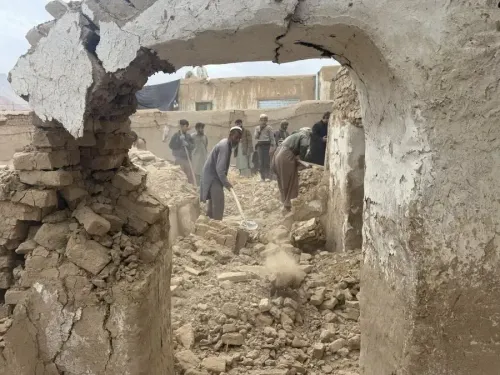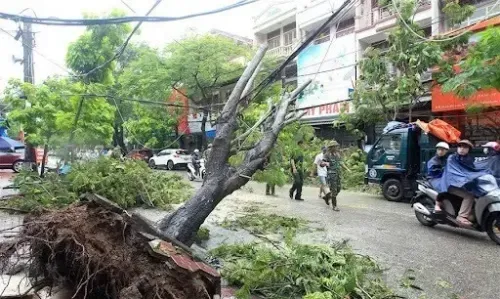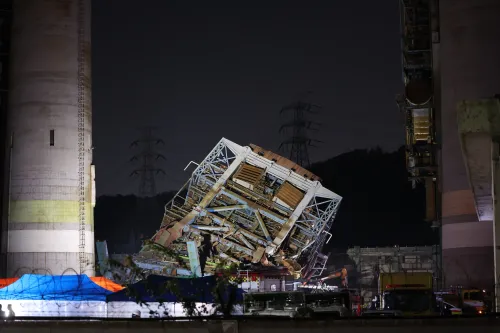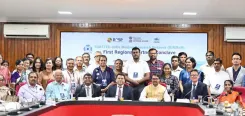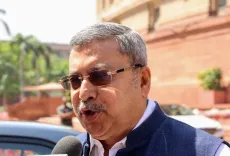Is Meloni's New Vision for Africa a Challenge to Beijing's Influence?
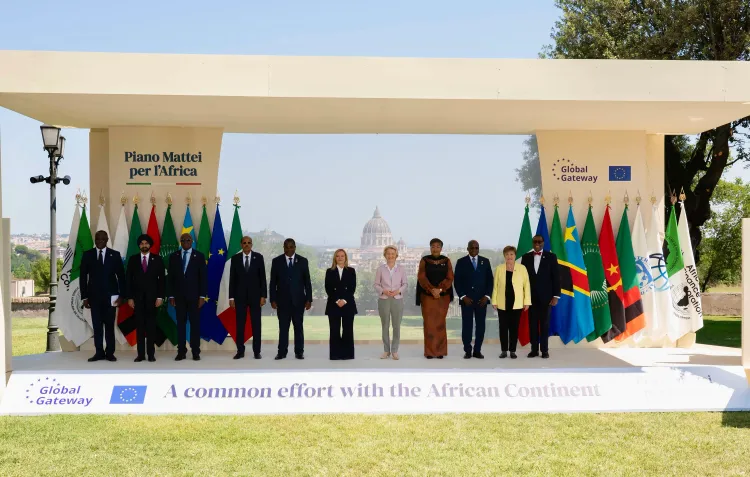
Synopsis
Key Takeaways
- Italy's Mattei Plan represents a shift towards multilateral cooperation in Africa.
- Significant investments of €1.2 billion and debt restructuring are pledged.
- The Lobito Corridor will enhance connectivity between Angola and Zambia.
- AI Hub aims to support African startups with up to 500,000 beneficiaries.
- Transparency and sustainability are core principles aimed at countering China's influence.
Rome: Italy has officially unveiled a new phase of its Mattei Plan for Africa, transitioning from a national endeavor to a collaborative initiative integrated with the European Union's Global Gateway strategy and aimed at a global outreach.
Co-hosted by Italian Prime Minister Giorgia Meloni and European Commission President Ursula von der Leyen at Villa Doria Pamphili in Rome, the summit signified the international expansion of the Plan: a shift toward multilateral cooperation, new alliances, and a more strategic role in the global development arena.
During her address to African and European leaders, Meloni characterized the event as a pivotal moment in what she described as a "pact among free nations that believe in dignity". She emphasized that the Mattei Plan is not a hierarchical aid scheme but a framework for "cooperation among equals". This principle of mutual respect and partnership recalls the legacy of Enrico Mattei, the visionary postwar energy figure for whom the Plan is named. However, the current developments are significantly more ambitious than its symbolic origins. As Meloni frankly stated, "Africa is the continent where our future is being shaped," aiming to incorporate Italy's vision within wider international frameworks.
Ursula von der Leyen supported this notion, describing the Global Gateway and the Mattei Plan as "collective efforts aimed at addressing mutual challenges and harnessing shared opportunities". Together, Rome and Brussels are not merely synchronizing agendas but presenting an alternative engagement model in Africa—one prioritizing transparency, sustainability, and co-development.
The summit showcased not only political dialogue but also concrete commitments. Italy and the EU committed to transforming €235 million of African debt into targeted development projects, alongside broader restructuring initiatives totaling €1.2 billion. These actions are designed to enhance African resilience without fostering dependency. Concurrently, the Italian government revealed a significant investment in the Lobito Corridor—a trans-African infrastructure project connecting Angola and Zambia—through a $270 million loan and a $50 million equity stake. This initiative is backed by Italy's Cassa Depositi e Prestiti, SACE, and the Africa Finance Corporation, in collaboration with the US-led Partnership for Global Infrastructure and Investment.
Italy's geographical and geopolitical position affords it a unique role in this emerging landscape. The nation serves as a cornerstone for EU-African relations and a natural endpoint for the India-Middle East-Europe Corridor (IMEC), increasingly associated with the Mattei Plan. IMEC provides essential infrastructure—ports, railways, digital and energy connections—while the Mattei Plan contributes the necessary social and human capital: vocational training, healthcare enhancement, technical education, and local governance. Together, they create a complementary strategy for connectivity and development, countering the influence of China's Belt and Road Initiative (BRI), often criticized for its lack of transparency and heavy debt burden.
The digital aspect of this strategy is also expanding. At the summit, Italy announced support for the Blue Raman submarine cable project, which will connect Europe, the Middle East, and India. Additionally, the launch of the AI Hub for Sustainable Development at the UNDP office in Rome represents a flagship initiative of Italy’s G7 presidency. This hub aims to assist up to 500,000 African startups over the next three years by integrating artificial intelligence into UN development frameworks. Supported by G7 allies and prominent Western tech firms, this project positions Rome as a critical player in Africa’s digital future.
This shift toward Africa is not occurring in isolation. As China's influence on the continent grows rapidly—often in ways that compromise transparency and sustainability—the Mattei Plan seeks to present a credible, values-driven alternative. Italy’s outreach is further strengthened by increasing support from Gulf nations, as seen in the joint endorsement of Sidi Ould Tah, a candidate from the Gulf region for the presidency of the African Development Bank. This triangle—Rome, Brussels, and the Gulf—has the potential to establish a powerful, multi-layered coalition with African stakeholders.
As Meloni reiterated, the Mattei Plan is "not a temporary initiative", but a long-term dedication. Follow-up actions are already underway: she plans to visit Addis Ababa in July, and African leaders are expected to return to Rome for another summit in the fall. However, the current challenge is less about vision and more about execution. Can this array of initiatives—from corridors and AI hubs to debt restructuring—transform into sustainable governance structures and credible development results?
African leaders present in Rome expressed cautious optimism. They acknowledged the governance framework being developed appears robust, yet emphasized the necessity for adequate financial resources and geopolitical alignment. In their perspective, Africa should not merely be a battleground for influence—it must evolve into a space for collaborative building, a future defined not by dependency but by co-authorship.
With today’s summit, Italy has proclaimed its commitment to help shape that future. Now, it must ensure follow-through.
(Vas Shenoy is the Chief Representative of the Indian Chamber of Commerce for Italy. He is a Rome-based entrepreneur, analyst, and author. The views expressed are personal)

